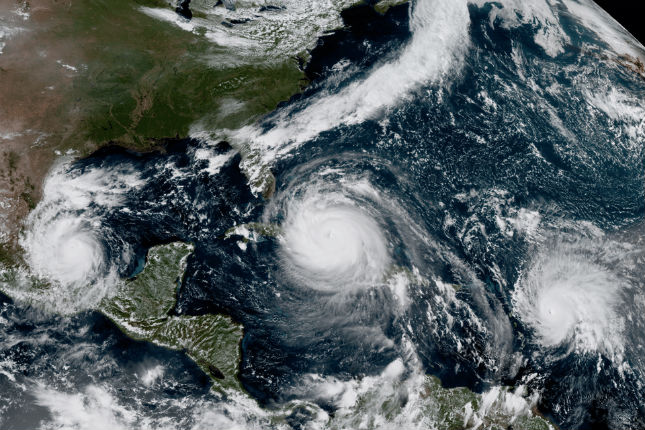-
Devastation Can Foster Resilience: Interview With Roger-Mark De Souza
October 10, 2017 By Wilson Center Staff
The devastation in Puerto Rico is shocking: Half of the population, or 3.4 million people, lack drinking water and 95 percent are without electricity even two weeks after Hurricanes Irma and Maria.
These disasters are not just an island issue or a Caribbean problem, said Roger-Mark DeSouza, the Wilson Center’s director of population, environmental security, and resilience, in a recent podcast interview with WOUB, an NPR station. They are a threat to all coastal areas of the United States, whose expanding populations and deteriorating infrastructures are vulnerable to the increase in climate-related natural disasters.
By revealing this vulnerability, the storms have given us an opening to repair and replace weak infrastructure with better and stronger systems. To be truly resilient, people must plan to prevent devastation, engage communities, and work together, he said.
The Wilson Center’s “Resilience Week,” held October 16-20, will convene resilience experts from around the world to find ways to improve how we prepare, recover, and rebuild from disasters and other emergencies. To join us, please RSVP for public events here.
This post is adapted from WOUB Public Media’s Spectrum podcast.
Photo Credit: GOES-16 captured this geocolor image of three hurricanes in the tropical Atlantic on the afternoon of September 8, 2017. Left to right, they are: Hurricane Katia, which made landfall in Mexico that night. Hurricane Irma, which was passing between Cuba and the Bahamas; and Hurricane José, which was churning in the open ocean. Courtesy of CIRA/NOAA Satellites.
 A Publication of the Stimson Center.
A Publication of the Stimson Center.



